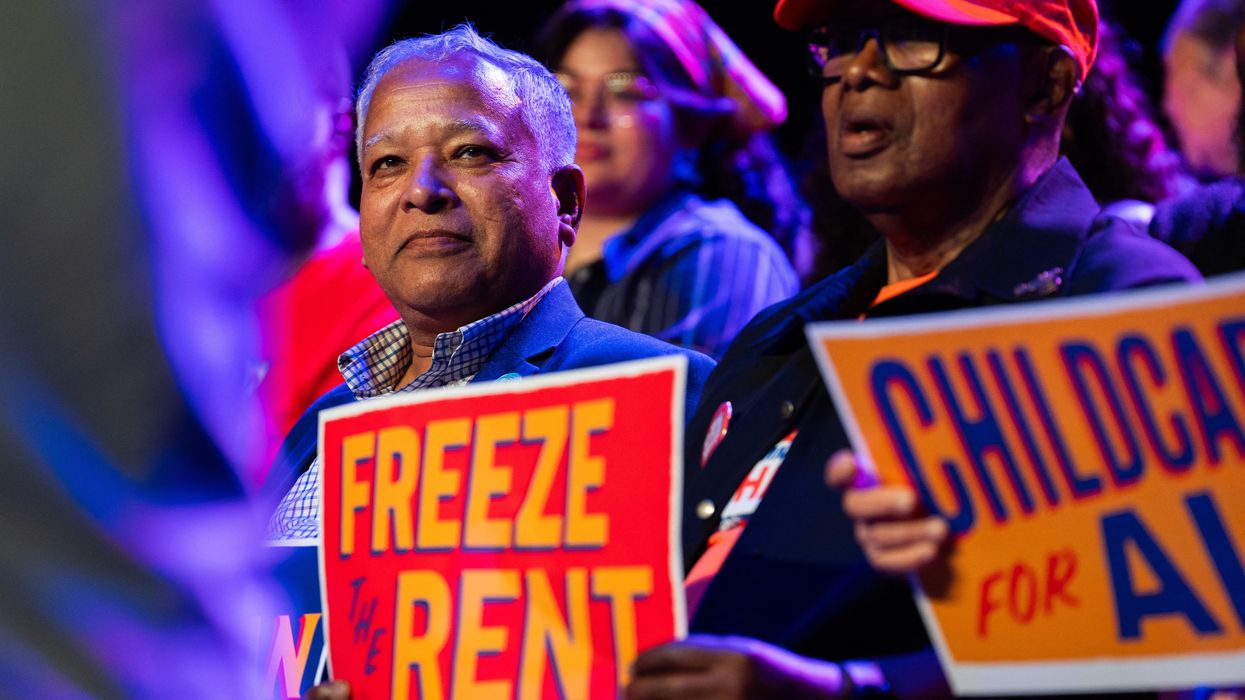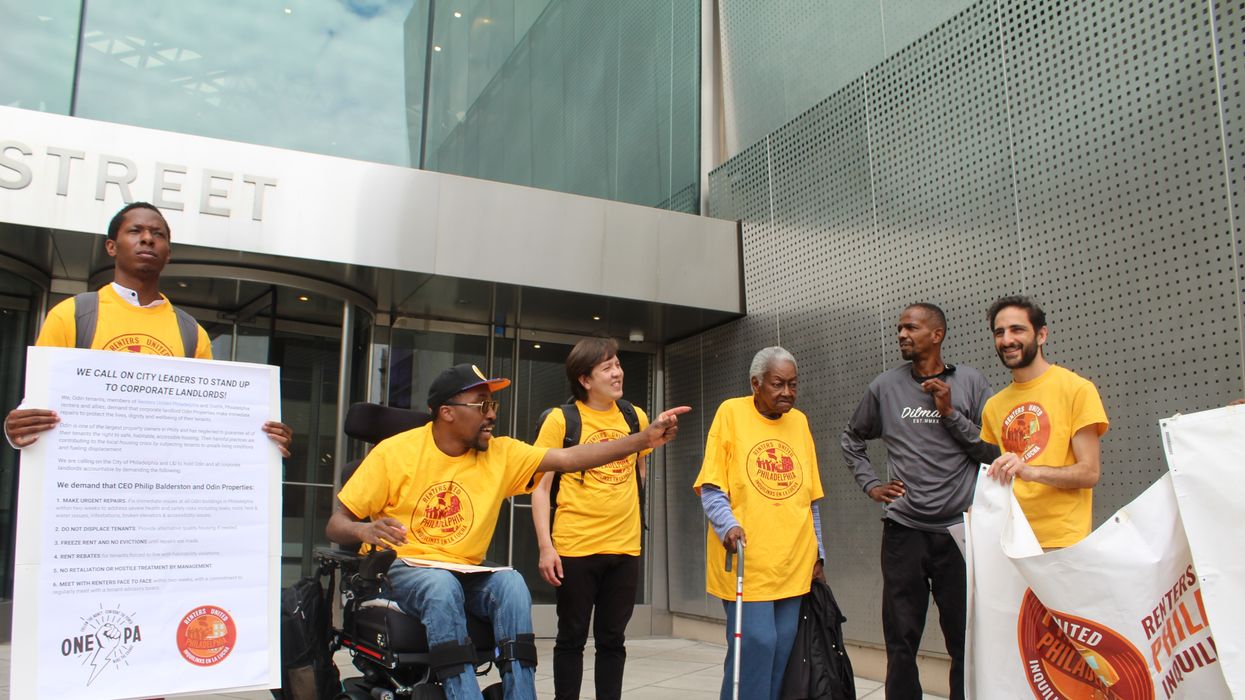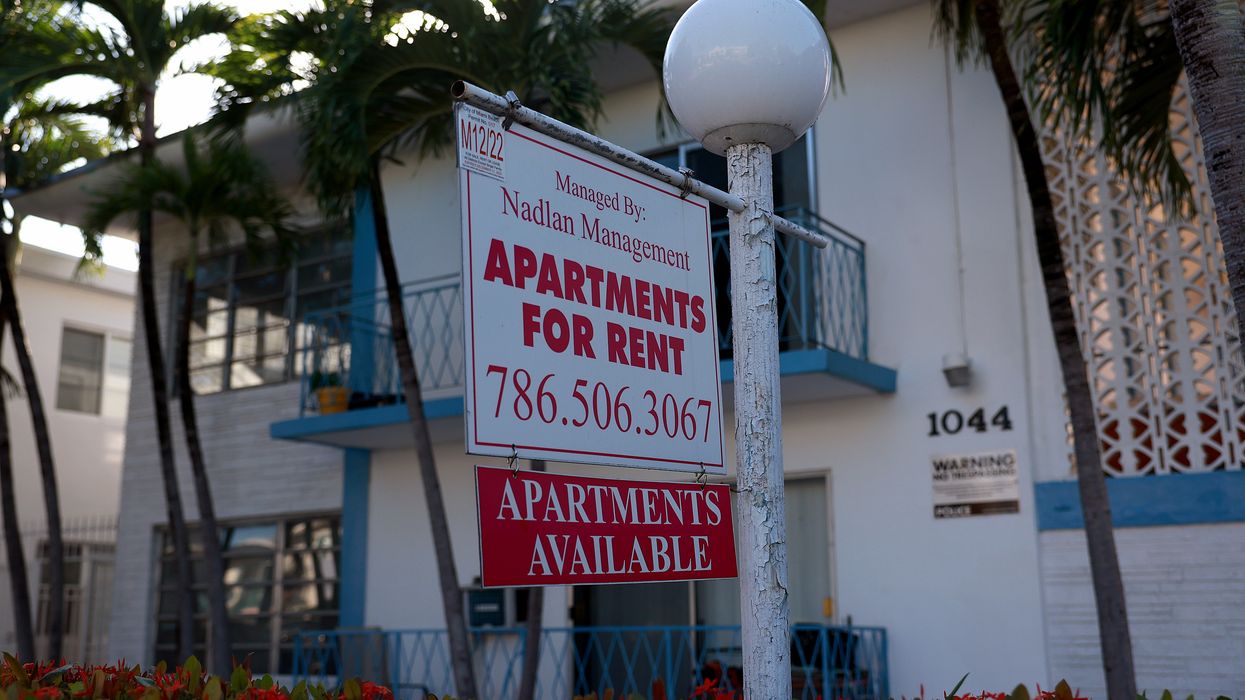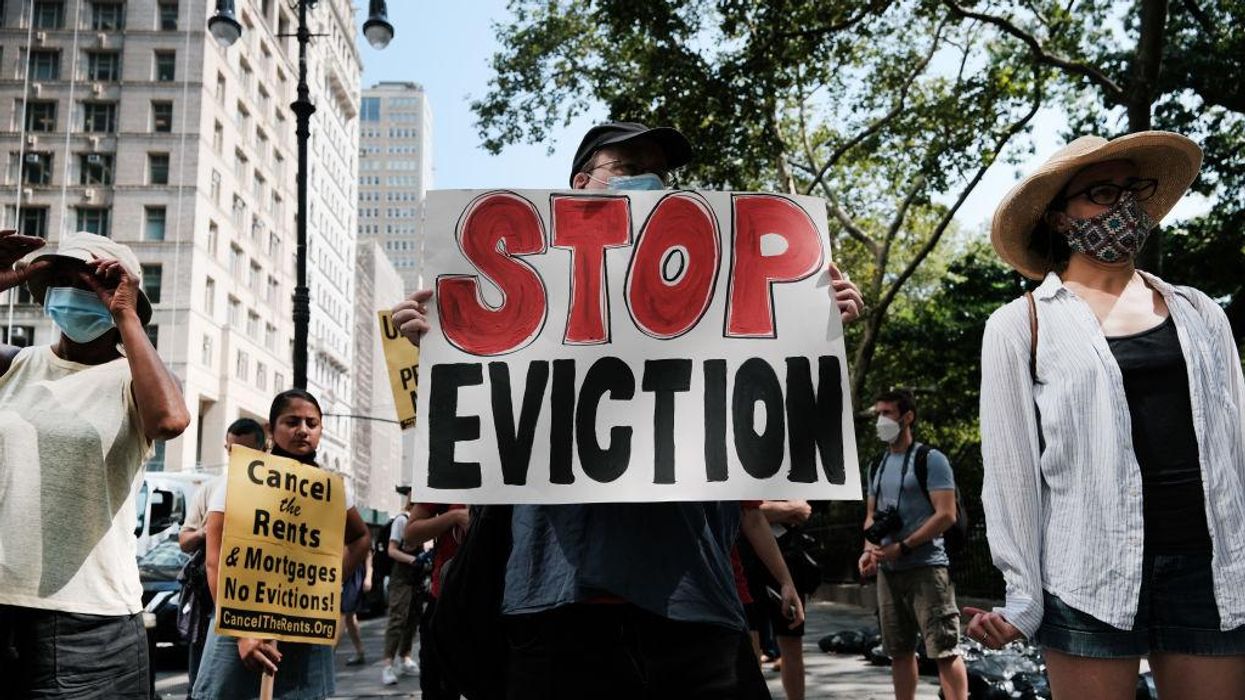Zohran Won by Running for the Tenant Majority
This election was a fight between tenants versus landlords, and we have won the first battle. We still need to organize to win the general, and beyond that, tenant-focused policies.
New York City is a tenant town. But for decades, in City Hall and in Albany, the real estate industry has used their vast power—manifested through money, networks, and control over major influential universities and civic institutions—to run New York. Politicians regularly see property owners as more deserving constituents—a condition that is downstream from how they are elected in the first place.
Traditional campaign consultants on both sides of the aisle train their candidates to believe that homeowners vote and that tenants—comparatively more transient—have less of a stake in our communities and neighborhoods. This creates a vicious feedback loop: If tenants are more transient, it is because of public policy that doesn’t believe in our right to housing stability. If we do not vote, it is because no one is giving us anything to vote for. If public policy doesn’t favor tenants, it is because lawmakers are accustomed to delivering for the interest groups that they believe elected them.
For too long, a vocal minority coalition of property owners, landlords, and real estate developers have used their vast wealth to buy our elections and control New York City. This is not only bad for tenants, it is a threat to our democracy. They then use this power to marginalize tenants further—blocking tenant protections and writing in new ways to raise our rents.
We need people in City Hall who know that we—not the real estate industry, not the landlords—put them there.
Historically, national tenant voter turnout is lower than property owner turnout, but in New York, a majority tenant city, that isn’t the case. Because we are breaking the cycle.
Things began to change in 2018, when a group of eight Working Families Party-backed Democrats and one democratic socialist lawmaker were elected to the state legislature. During their campaigns, they refused real estate donations, emboldened by Rep. Alexandria Ocasio Cortez’s (D-N.Y.) similar pledge and victory just months before. With the support and organizing of tenants, the New York State lawmakers immediately passed the Housing Stability and Tenant Protection Act of 2019, a landmark shift against pro-landlord policymaking in Albany.
And now tenants are at the heart of another shakeup. Campaigning on affordability and a promise to freeze the rent for four years, Assemblymember Zohran Mamdani (D-36) decisively beat the establishment-picked Andrew Cuomo, winning the Democratic mayoral primary by 12 points.
At every turn, Zohran was Cuomo’s foil. While Cuomo was every landlord’s favorite candidate, Zohran ran aggressively for the tenant majority, putting rental costs front and center in his campaign’s message. Cuomo accepted millions from the real estate industry. In return, he promised to raise the rent, to expand valuable tax exemptions, and to dismantle the very tenant protection laws he signed into law just six years ago.
Zohran, on the other hand, promised to hold slumlords accountable, build truly affordable homes, and freeze the rent. Again and again, in video after video, interview and campaign appearances across the city the message was relentless: Zohran will stand up to your landlord and fight alongside you. He will use the vast tools of the New York City government to deliver higher quality and more affordable housing. If your landlord doesn’t make repairs, we’ll fix it ourselves and fine them. If they don’t pay, we’ll collect the debt.
Initial analysis show that he crushed his opponent in places like Washington Heights and the South Bronx—places that are both super majority tenant neighborhoods—traditionally thought of as moderate and Democratic establishment strongholds.
This is not surprising for those of us who have worked with Zohran for years. As an assemblymember, he was a dogged advocate for Good Cause Eviction protections, defended rent stabilization against real estate industry attacks, and got arrested in civil disobedience actions protesting rent increases and evictions alongside tenant organizers. He has advocated for non-market-controlled housing for years. Zohran announced his mayoral campaign with tenants’ rights organizations like New York Communities for Change and CAAAV Voice.
And as Zohran laid the foundation for the path to Gracie Mansion, the tenant movement launched a new 501c4 political vehicle—the New York State Tenant Bloc (the organization of which I am the director.) The timeline is not a coincidence: We launched with an explicit goal of building a 250,000-strong tenant voting bloc and using our collective voices and votes to elect a tenant majority mayor.
Collectively, tenants’ rights organizations delivered Zohran tens of thousands of votes. While we were a small part of his overall gargantuan volunteer operation, we were proud to mobilize over 715 volunteers to take action in support of his campaign, week after week. Over 20,000 people vowed to vote in favor of Zohran’s core campaign pledge to Freeze the Rent—and by hosting forums, mobilizing in huge numbers to rent board hearings, and elevating our campaign on social media and the press, we reached countless more tenant voters.
While we are proud of Zohran’s record, we didn’t volunteer in droves for him because of his history. We did it because we know that if we want universal rent stabilization and public investments in social housing that is truly affordable for every New Yorker, we need people in City Hall who know that we—not the real estate industry, not the landlords—put them there.
Now, as the organized tenant movement is on the cusp of having a rent stabilized tenant in City Hall, we must organize more forcefully, in greater numbers, than ever before. We need a mayor and a movement.
The machine that tried to elect Andrew Cuomo is bruised, but it is not broken. The real estate industry is now on the offensive, campaigning aggressively in the press and spending big in the general election. They are threatening lawsuits and engaging in a capital strike: refusing to maintain our homes under so-far unsubstantiated claims they cannot afford to. To deliver on a rent freeze, the mayor will have to call their bluff. And doing so will require strong tenant movement organizing at every level—our buildings, our neighborhoods, our city, our state—to make it possible.
This election was a fight between tenants versus landlords, and we have won the first battle. We still need to organize to win the general, and beyond that, tenant-focused policies. We are determined to turn the rent freeze electoral majority into a permanent political powerhouse. Through this voting bloc, tenants will shape budgets and legislation. We will determine the electoral fate of lawmakers, especially those who stand in the way of policies that deliver truly affordable housing, and yes, frozen rents.
What happens in New York matters for the rest of the country: Our tenant majority was once seen as a unique blip in a country that is overall defined by homeownership. But fewer and fewer people can afford to own their own home, and being a tenant is increasingly the norm. Nearly every major city in the country is majority tenant. Many are unable to afford the rents, live in slum conditions, and are forced to move from apartment to apartment as landlords price us out. And just like in New York, politicians who work for property owners but claim to represent tenants are a dangerous threat to democracy.
Unable to afford basic essentials like housing and groceries, voters are turning to the far-right (which is offering a fascistic solution based on deportation and fear), or they are dropping out of politics altogether and simply not voting.
To stop the spread of fascism, leaders running for local and state office must follow Zohran’s path to victory. Run for the tenant majority. Give us something to vote for, and we’ll go to the polls. Our democracy depends on it.



